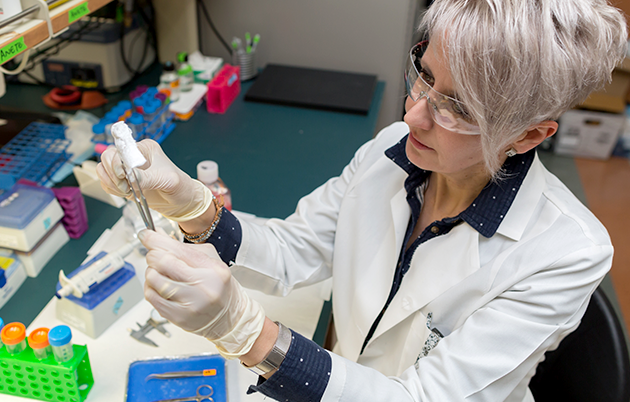KyungMann Kim, PhD, professor, Department of Biostatistics and Medical Informatics at the UW School of Medicine and Public Health, recently received a five-year, $11.8 million award from the NCI of the National Institutes of Health to set up and manage the CP-CTNet Data Management, Auditing and Coordinating Center (DMACC).
The network comprises three leading academic organizations across the United States, each with 10 to 30 affiliated organizations, and the DMACC to conduct early phase clinical trials for cancer prevention.
“This is an exciting opportunity for me and the Department of Biostatistics and Medical Informatics to have a major impact in the nation’s program in cancer prevention clinical trials in partnership with the NCI Division of Cancer Prevention,” Kim said. “This will also be an important component of the UW Carbone Cancer Center’s Cancer Prevention and Control Program.”
The network will conduct early-phase clinical trials to assess the safety, tolerability and cancer prevention potential of agents and interventions of varying classes in order to advance their further clinical development for cancer prevention.
The DMACC is responsible for coordinating trans-network activities and providing expertise and resources in centralized data management and reporting, clinical trials auditing and administrative and logistical coordination for the network, including providing expertise in clinical trials methodology and biostatistics.
The center collaborates with the Frontier Science Foundation in New York, which provides data management and related research support. The foundation’s mission is to advance the application of statistical science and practice and data management techniques in science, health care and education in diseases such as cancer and HIV/AIDS research, among others.
The DMACC will be housed in the Department of Biostatistics and Medical Informatics, located in the Wisconsin Alumni Research Foundation building, where two faculty members, a senior scientist, two staff statisticians, a research project manager and an administrative coordinator will work on the project.
Anne Traynor, MD, associate professor of medicine at the UW School of Medicine and Public Health and faculty director of the clinical trials office at UW Carbone Cancer Center (UWCCC), will help coordinate clinical trials auditing for the center. Sue Siminski, chief executive officer at Frontier, will act as the data management and reporting unit director for the center.
“Dr. Kim and the department have been an integral part of our translational research efforts in cancer prevention and we look forward to working with Frontier, Dr. Kim and his team on this important effort in advancing cancer prevention research,” said Howard Bailey, MD, director of the UWCCC and leader of the NCI Cancer Prevention Clinical Trials Network Consortium centered at UW-Madison.
Improving UW’s infrastructure for clinical trials is essential for research throughout the School of Medicine and Public Health, according to Michael Newton, PhD, newly named chair of the Department of Biostatistics and Medical Informatics.
“The department is proud to host this exciting CP-CTNet DMACC focused on the critical task of data coordination and statistical experimental design and analyses for multi-center clinical trials,” he said. “It is a model for sophisticated data science in clinical research.”

